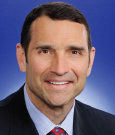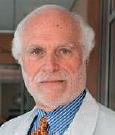To kick off the second national Turning the Tide Against Cancer conference, sponsored by the American Association for Cancer Research, Personalized Medicine Coalition (PMC), and Feinstein Kean Healthcare, Edward Abrahams, PhD, President of PMC, noted that U.S. health-care costs are unsustainable and threatening future innovation.
Cancer care, he said, is unnecessarily expensive ($173 billion a year by 2020), made more so by poor value and inefficient research and care delivery systems. Moreover, incidence will rise as the population ages, and costs will escalate out of control—until we might not be able to afford it at all.
“The challenge is to sustain progress against 200 identifiable cancers while at the same time reduce spending. This imperative exists against a need to shift to a more patient-centric, high-value system of research and care delivery. Health care must become more efficient and effective.”
These problems have existed for decades now, most policymakers and caregivers acknowledge them, innumerable conferences and roundtables discuss them and posit solutions—and little changes.
Tackling Complexity
Anna Barker, PhD, Co-Director, Complex Adaptive Systems Initiative, Arizona State University, and a panel moderator, paraphrased Charles Dickens by noting that in cancer research and care, this is the best of times and the worst of times. “The best because science is now the best it’s ever been, and the worst because of the burden of the disease. The number of patients is mind-numbing, the costs worse.”
She added that the system is “broken,” especially with regard to clinical trials, and asked panelists to discuss approaches to repair, especially with regard to:
- Defining value in cancer treatment: what prices are fair, how value judgments are made, and how the value of treatments evolves over time
- Reforming clinical research: the overburdened, bureaucratic, rigid, and complex current system in which benefits are often not worth the difficulties encountered, and studies often fail for lack of accrual
- Building a comprehensive system of research and care: gaining insights from research while protecting intellectual property rights and creating accessible open databases
Value and Patient Centrism
Newton F. Crenshaw, Vice President, Lilly Oncology, and a survivor of non-Hodgkin lymphoma, said that what patients want most are innovative medicines that work, that is, significantly extend their lives while keeping severe toxicity at bay. This means we need accessible clinical trials. He suggested one way to reduce barriers to such trials is by developing a user (patient)-centric design because patients tend to define the value of a trial as what turns out to be good for them.
Lee N. Newcomer, MD, MHA, Senior Vice President, Oncology, Genetics, and Women’s Health, UnitedHealthCare, added that patient centrism is an old concept (“We have always taken histories and done physical examinations”), but the modern version of patient centrism is the necessity for evidence about the various inferences we make about treatment decisions. “We need trials to test those inferences.”
Nevertheless, regardless of what their physicians advise, people apply their own values to what they decide to do. For instance, he noted that UnitedHealthcare charges a $50 copay for all oral cancer drugs, but despite this relatively low out-of-pocket cost, some people don’t fill the prescription if, for a variety of reasons and beliefs, they don’t see value in the drug.
He noted that the combination of insurance premiums and out-of-pocket expenses for cancer treatment now requires about 50% of total household income—and in not too many years, it could increase to 100% without intervention.
Lowell E. Schnipper, MD, Theodore W. and Evelyn G. Berenson Professor, Department of Medicine, Harvard Medical School, said that it’s not easy to define value in health care because it is such an individual, highly charged concept that depends on so many factors: cost, potential outcome, toxicity, long-term implications, and the like. Nevertheless, value assessment is part of what oncologists have to do to “mediate the treacherous sea that we call cancer—and evidence is the only way.”
Patient-centric care, also called individualized or personalized medicine, often works to patients’ detriment. “Doctors sometimes do too many procedures (scans, biopsies, surgery, etc) and prescribe diagnostics and medicines for the sake of profit rather than for the sake of value,” he added.
This happens frequently enough in oncology that ASCO has begun publishing an annually updated list of the top five commonly used practices or interventions that do not contribute to quality patient care, as part of the American Board of Internal Medicine Foundation’s Choosing Wisely initiative (www.asco.org/
practice-research/top-five-list).
Research Data Sharing
Dr. Newcomer said that clinical data resulting from comparative effectiveness research must be made available to the public—what he termed “democratization” of data. “A collaborative mindset requires that we scale back the intensity of competition so prevalent now. The more data you give away, the more you get back.”
Mr. Crenshaw agreed. “We have to create incentives for companies to share the mountains of data they have collected from various sources over the years.”
Dr. Schnipper noted that even 2 years ago, clinical trials resulted in clinically meaningful outcomes. This is no longer the case. “Researchers are confusing statistical significance with clinical meaning. We need a higher bar for trial results.”
Moreover, he said, the clinical trial system is not representative of what’s really going on out there. That is, “real” patients often do not have the same characteristics as research subjects. Moreover, there are so many hurdles for prospective subjects to clear that “It’s easier to get into Harvard than a clinical trial,” he quipped. ■
Disclosure: Drs. Abrahams, Barker, Schnipper, Newcomer, and Mr. Crenshaw reported no potential conflicts of interest.






